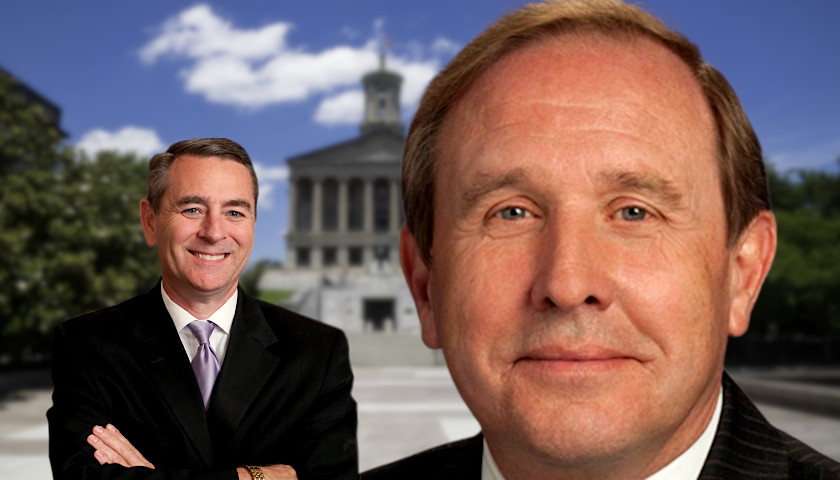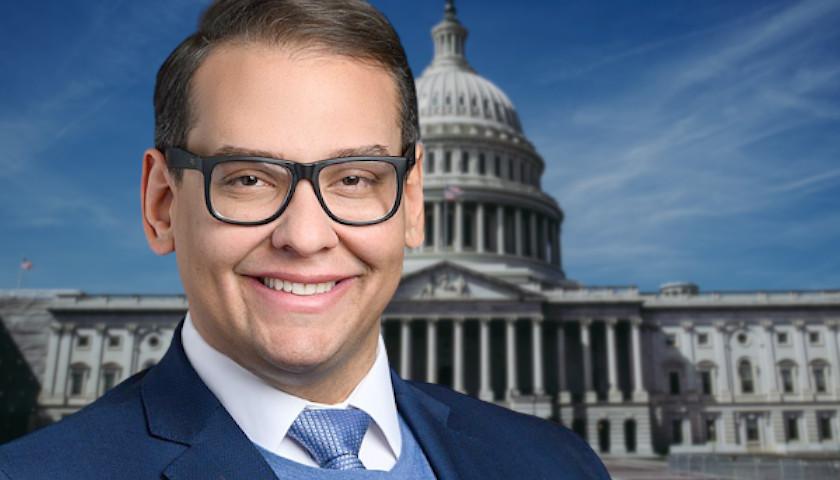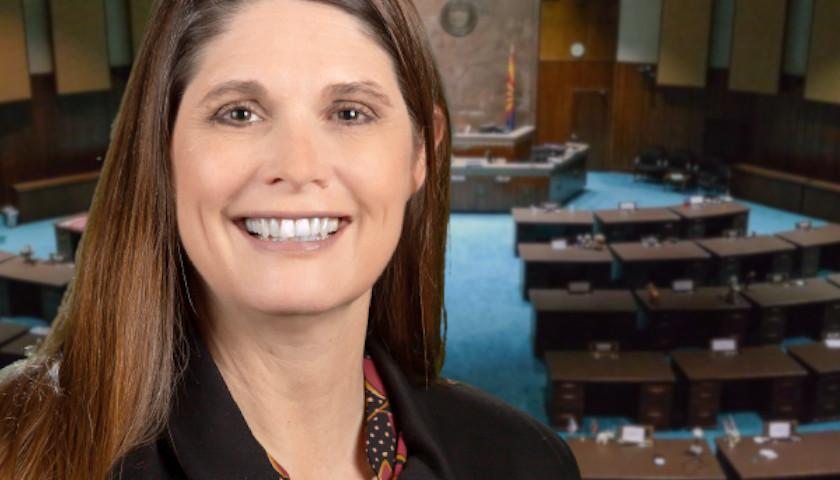A member of the House Ethics Committee, Representative Mike Carter (R-Ooltewah) issued a statement calling for the resignation of Glen Casada as House Speaker after participating in a confidential advisory opinion process.
All aspects of a House Ethics Committee advisory opinion are confidential, according to Representative Matthew Hill (R-Jonesborough), Deputy Speaker and Chair of the House Ethics Committee, who said in an exclusive statement to The Tennessee Star that, “Per House rules, an advisory opinion and any information related to it is kept confidential.”
The advisory opinion was requested by House Speaker Glen Casada (R-Franklin) as part of an action plan he issued May 8 that, as he put it, “seeks to provide clarity on what has transpired, as well as ensure that I am doing everything within my power to prevent future missteps.”
In the lengthy statement published by Times Free Press, Carter retreated from his previous position that a decision not be made until all the facts were known and the investigation completed, because he feels moved to call for the resignation of Speaker Casada based on the facts that he now knows.
Carter’s statement came after participating in an individual meeting as a member of the House Ethics Committee on Monday, during which he was given a statement of facts “setting forth the Speaker’s position on many of the issues that have been raised.”
“During my 6 years on the Ethics Committee, I have never received a request for an advisory opinion from a legislator concerning his own conduct,” was Carter’s reaction.
However, a section of the Ethics Code for the House of Representatives seems to address the very scenario of a representative requesting an advisory opinion as to whether an ethics violation has or is likely to occur.
Article IV House Ethics Committee, Section 1 (b), states, “The House Ethics Committee shall have authority to render, upon written request of any representative, advisory opinions as to whether the facts and circumstances of a particular case constitute or will constitute a violation or probable violation of this Ethics Code. The identity of any representative requesting an advisory opinion, or any person involved with such request, shall be kept in confidence. With respect to an issue addressed in an advisory opinion, any person who conforms that person’s behavior to the requirements of the advisory opinion may rely upon the advisory opinion without threat of sanction by the House Ethics Committee or the House of Representatives. Advisory opinions of the committee shall be in writing and signed by six (6) or more members of the committee.”
Apparently, the process is one that was not used in 2017 as then Representative Barry Doss from District 70 pitched the gas-tax increasing IMPROVE Act, which he later rebranded as the 2017 Tax Cut Act, even as there were calls by the Tennessee Republican Assembly for an ethics investigation over potential Tennessee Department of Transportation contracts for his company, a fact Doss later admitted.
According to Carter’s account, the facts as presented did not appear to align with documents in the public realm.
After reviewing the statement of facts, Carter was then handed a two or three page advisory opinion with signature lines for all ten Ethics Committee members, “which based on the facts presented, found no ethical violations.”
The 10-member House Ethics Committee is made up of equal numbers of Republicans and Democrats:
Matthew Hill (R-Jonesborough), Chair
Karen Camper (D-Memphis)
Mike Carter (R-Ooltewah)
John DeBerry (D-Memphis)
Darren Jernigan (D-Nashville)
William Lamberth (R-Portland)
Harold Love (D-Nashville)
Cameron Sexton (R-Cookeville)
Robin Smith (R-Hixson)
John Mark Windle (D-Livingston)
Carter said, “I was stunned that facts had been produced with an exonerating advisory opinion written for which no ethics committee member had input.”
After inquiring as to the author of the opinion, Carter was advised that legal counsel for the House Ethics Committee had written the opinion. He was also informed that the opinion was accurate, because it was based upon the facts as presented and was limited to those facts.
The opinion not having any import if the facts weren’t correct wasn’t a sufficient explanation for Carter.
Carter explained he would sign the advisory opinion if he could modify the opinion to clearly state that the facts upon which the opinion was rendered “appear to be divergent from facts in the public record.” Carter’s proposal that he write a final paragraph and attach the letter of facts to the opinion as Exhibit A he understood would be honored.
A short while after, Carter was informed that the meeting of the full House Ethics Committee scheduled for 1:30 that day was cancelled.
Carter describes a discussion, without identifying with whom or when it took place, “It was discussed that the opinion would be used as an exoneration of the Speaker’s conduct. Further that if it is to be used for such purposes, it must be done with accuracy and integrity befitting the Ethics Committee.”
Alluding to the virtue of forgiveness, Carter said, “What was said or done 3 years ago deserves to be considered in the light of that person’s life journey at that point.”
Reflecting on the meeting, Carter said, “My concern with the meeting is that it shows a heart for misrepresentation and political maneuvering to save the requestor’s office even at a loss of reputation and integrity of the House Ethics Committee.”
“This is the most egregious act I have been made aware of. It is not an allegation of past conduct it is proof of present state of mind and present conduct. In my 6 years on the Ethics panel this is wholly without precedent. If the requestor is willing to rig and predetermine an outcome of the ethics committee this week he is in my opinion he is not fit to hold the trust of his office or the state of Tennessee.”
Carter said he could argue “that the text messages are disqualifying,” presumably referring to the much-publicized explicit and racist text messages either copied to or written by Casada involving his former Chief of Staff Cade Cothren and another former employee on a personal, non-government issued mobile phone in 2016.
“I could argue that knowing and failing to report felony criminal conduct in his presence is disqualifying,” Carter further stated, which may be related to Cothren’s admission via text on a personal mobile phone of his snorting cocaine in his legislative office. There appears to be no evidence that Casada nor then Speaker of the House Beth Harwell were aware of the incident with Cothren, who was the House Republican Caucus Press Secretary at the time.
“I could argue that spending 7 million dollars to operate his office more than Speaker Beth Harwell is disqualifying,” Carter also said.
Indeed, Governor Bill Lee’s budget for fiscal 2019-2020 allocated an additional $7,000,000 to the category of “Legislative Administration Services.” The budget document shows on Page B-21 (Sheet 209 of 534) that the category nearly doubled from $7,479,800 in 2018-2019 to $14,490,400.
The budget document identifies that the expense is for Legislative Administration Services, which falls under the Legislature’s Administrative and Support Services charged with the operation administration of the two houses of the Tennessee General Assembly, and includes the functions of administering the costs of the annual legislative sessions, preparing legislative budgets, purchasing supplies and equipment needed by the members, managing facilities and coordinating the internship program.
Of the total $7,000,000 increase for both houses of the General Assembly, not just the House as Carter indicated, $3,000,000 is allocated for payroll, while the higher allocation of $4,000,000 is for operational expenses.
Following the list of disqualifying actions, Carter said that he respectfully states that “attempting to pre-determine an opinion from the Ethics Committee is the final straw for me.”
“Respectfully I submit that no other facts are needed. If the ethics panel is not a sacred and trusted institution above rank political maneuvering and conniving then we as a body are lost. I respectfully now call for the immediate resignation of the Speaker. For the good of the people of Tennessee it is time the Republican Caucus lead, not follow, stand straight and firm, not cowering to political threats and pressures, to follow our oaths of office and to vote to remove the speaker.”
In his statement to The Star, Hill presented a different take on the meetings, “These individualized meetings with Committee members and legal staff provided an environment where informal discussions could take place.”
During the individual meetings with Ethics Committee members, according to Hill, “Members asked questions, discussed facts, and provided input to help with drafting of an advisory opinion.”
Since Casada did not participate in the meeting, and it was Hill and legal staff involved, Carter’s comments about the advisory opinion, the development of it and the manner in which the meeting was conducted may have the unintentional consequence of implicating the actions of those in attendance.
If so, the allegations would be of a very serious nature against a fellow House member as well as the attorneys involved, who are held to an ethical conduct supervised by The Board of Professional Responsibility. Carter himself is an attorney and former General Sessions Judge.
Carter concluded, “Knowing this statement will bring political retribution on me and therefore the people of District 29 I make these facts known out of an understanding that my oath as a state representative requires such action and leaves no alternative.”
Carter and Casada were opponents in the 2016 House Republican Caucus Elections for the position of Majority Leader. It was a contentious battle, as Times Free Press reported that Casada said there was an effort to “sabotage” his election by releasing a video of him in a restaurant with a young woman. Casada went on to win the Majority Leader post against Carter by a vote of 42-29.
It is unknown whether the House Ethics Committee issued an advisory opinion to Casada and whether he will release it during the closed-to-the-public House Republican Caucus meeting scheduled for Monday, May 20 at 2:30 p.m. It is anticipated that the other 72 members will conduct a secret ballot on whether Casada maintains support of the Caucus.
On Thursday The Tennessee Star called on House Republican Caucus Chairman Cameron Sexton (R-Cookeville) to make the Monday’s meeting open to the public and available for live audio and video broadcast. Chairman Sexton responded to The Star’s request on Friday.
– – –
Laura Baigert is a senior reporter at The Tennessee Star.






[…] lost to Casada in the 2016 House Republican Caucus election for majority leader by a vote of 42-29, accused Casada of trying to rig the outcome of an Ethics Committee advisory opinion he requested, a charge […]
[…] this month Representative Mike Carter (R-Ooltewah) complained about a series of meetings held with individual members of the House Ethics Committee, Chaired by […]
[…] Rep. Mike Carter (R-Ooltewah) on Friday called for Casada’s resignation, alleging he attempted to “rig and interfere with” a proposed advisory opinion of the House […]
[…] Friday, Carter called for Casada’s resignation, alleging he attempted to “rig and interfere with” a proposed advisory opinion of the […]